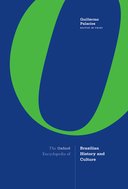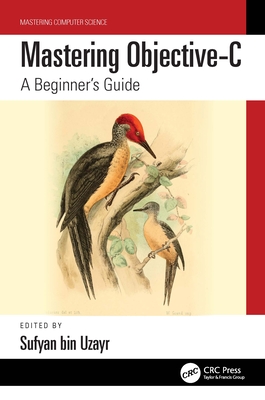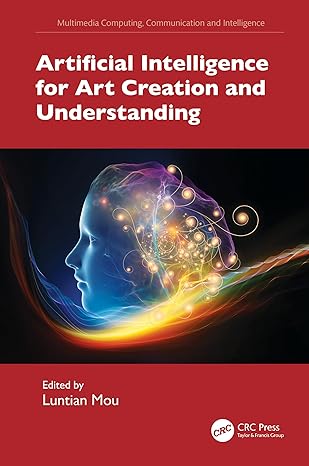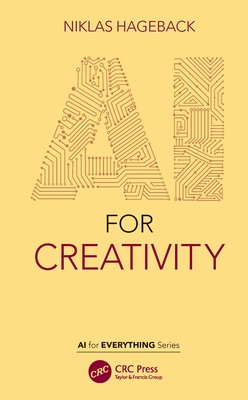图书简介
This dynamic reference work brings together an internationally renouned group of scholars to survey the current state Brazilian history and historiography. The collection includes essays whose coverage ranges from the nation’s prehistory until the beginning of the 21st century. It features original research that interrogates and reinvents the historiographic tradition; investigates the nation’s political, social, and cultural history; and offers new interventions in international relations, environmental history, and a variety of other research areas.
Topical Outline of Articles; Articles in the encyclopedia are organized alphabetically. Articles in this outline are arranged under the following headings:; Precolonial History; Indigenous Societies in Brazil before the European Arrival; Pre-Columbian Earth Builders of the Amazon; Colonial Brazil, 1500-1822; Africans in Brazil and Afro-Brazilian Religion and Culture; Atlantic Sugar Trade in 17th-Century Brazil; Cartography in the Administration of Portuguese America from the 16th to 18th Centuries; Colonial Elites: Planters and Land Nobility in 17th- and 18th-Century Brazil; Color and Race in Portuguese America, 1640-1750; Dutch in Brazil, 1624-1654; Ecclesiastical Geography of Colonial Brazil; Economy during the Colonial Period; Empire in the Tropics, 1808-1821: A Historiographical Overview; Frontier, Backlands, and Indigenous Presence in Colonial Sao Paulo; Gender and Sexuality in Colonial Brazil; Indigenous Peoples and the Portuguese Crown in the 17th and 18th Centuries; Justice and Society in Colonial Brazil during the 17th and 18th Centuries; Labor, Territory, and Economy in the Colonial North; Palmares and Zumbi: Quilombo Resistance to Colonial Slavery; Popular Religion in Colonial Brazil; Revolt of the Enteados and Tailors in Bahia, 1798; Slavery and Its Economic Structures in Colonial Brazil; Sugar and the Formation of Colonial Brazil; Traders in Colonial Brazil: Origins, Strategies, and Networks; Women and the Catholic Church in Colonial Brazil; Imperial Brazil, 1822-1889; Abolition of the African Slave Trade in Brazil; Balaiada War, 1838-1841; Beyond Slavery: Abolition and Post-abolition Brazil; Black Intellectuals in 19th-Century Rio de Janeiro and Sao Paulo; Cabanagem in Para, 1835-1840; Capoeira: From Slave Combat Game to Global Martial Art; Carnival: Toward a History; Coffee and the Formation of Modern Brazil, 1860-1914; Cultural Institutions of the Brazilian Empire; Enslaved and Free Workers and the Growth of the Working Class in Brazil; Free Afro-Brazilians in the 19th Century; Gender and Sexuality in Brazil since Independence; Historiography of Brazil in the 19th Century; Immigration and the Historical Formation of Brazil; Independence: Change and Continuity; Insurgent Pernambuco: From the Cabanos War (1832-1835) to the Praieira Revolution of 1848; National Identity in Brazil and the Paraguayan War; Native Brazilians under the Monarchy in Brazil; Paraguayan War and Brazil: Conflicts and Interests; Popular Revolts in the Empire of Brazil; Rio de Janeiro: A Sociocultural History; Sabinada Rebellion; Sexuality and Black Magic in Brazil; Slave Revolts; Slavery and International Relations in 19th-Century Brazil; Slavery, Race, and the Construction of the Imperial Order; Visions of the Nation in Imperial Brazil: Arts and Celebrations; Republic of Brazil, Dictatorship, and Military Government, 1889-1985; Amazon Development; Architecture in 20th-Century Brazil; Artistic Vanguards in Brazil, 1917-1967; Artistic Vanguards in Brazil, 1952-1990; Authoritarian Urbanism in the Era of Mass Eradication in Rio de Janeiro, 1960s and 1970s; Black Associational Politics in 20th-Century Brazil; Brasilia: Relocating Brazil’s Capital Inland; Cangaco and Cangaceiros: Rural Banditry in the Brazilian Northeast; Carmen Miranda: Race, Gender, and Camp Culture; Cinema and Moviegoing in Brazil; Contemporary Art in Brazil, 1960s and 1970s: Forging the New; Economy in Brazil during the 20th Century; Estado Novo: Politics and Political Propaganda in Brazil, 1937-1945; Favelas and Politics in Brazil, 1890-1960; Gilberto Freyre and the Politics of Culture, 1930-1980; Health, Malaria Campaigns, and Development in Brazil; Historiography of Brazil in the 20th Century; Indigenous Policy and Politics in 20th-Century Brazil; Intellectuals and the Nation in Early-20th-Century Brazil; International Politics and Brazil; Japanese Immigration to Brazil; Literary and Cultural Magazines in Brazil in the First Half of the 20th Century; Luis Carlos Prestes: A Revolutionary between Two Worlds; Marxist Thought in Brazil; Military Coup in Brazil, 1964; Military Regime in Brazil, 1964-1985; Myths and Identities in Brazilian Culture: Sergio Buarque de Holanda and His Raizes do Brasil; Pentecostalism in Brazil; Popular Music before 1945; Populism in Brazil, 1930-1964; Publishing Houses and the Discovery of Brazil, 1930-1950; Race, Science, and Social Thought in 20th-Century Brazil; Revolta da Chibata: Conscription, Corporal Punishment, and State Control of Free Afro-Brazilians; Samba Schools; Sao Paulo’s Biennales; United States and the 1964 Brazilian Military Coup; Vaccine Revolt of 1904, Rio de Janeiro, Brazil; Vargas Era and the Politics of Cultural Production, 1930-1945; War of Canudos; World War I and Brazil; World War II and Brazil; Modern Brazil, 1985-Present; AIDS Crisis and Brazil; Alcohol and Drugs in Brazil; Cacao Growing in the State of Bahia: A Sociopolitical History; Cardoso Presidency; Collor Presidency from the Electoral Campaign to the Impeachment; Consumerism and Advertising in 20th-Century Brazil; Drought and Public Policy in Northeast Brazil; Environmental Change and Mobilization in Brazil; Football (Soccer) in Brazil; LGBTQ History and Movements in Brazil; Luiz Inacio Lula da Silva and the Brazilian Workers Party (PT); Popular Music since 1945 and the Growth of the Brazilian Culture Industries; Protected Environmental Areas across Brazil; Race and Social Inequality in 20th- and 21st-Century Brazil; Radical Right Ideologies and Movements in Brazil; Regionalism in Brazil; Rural Social Movements in the Second Half of the 20th Century; Science and Technology in 20th-Century Brazil; Sertao and Its Representations; Telenovelas and Modernity in Brazil; Underdevelopment in Brazil and Its Interpretations; Universities and Politics in 20th- and 21st-Century Brazil; Wildlife in Brazil: History, Threats, and Opportunities; Women’s History and Movements in 20th- and 21st-Century Brazil
Trade Policy 买家须知
- 关于产品:
- ● 正版保障:本网站隶属于中国国际图书贸易集团公司,确保所有图书都是100%正版。
- ● 环保纸张:进口图书大多使用的都是环保轻型张,颜色偏黄,重量比较轻。
- ● 毛边版:即书翻页的地方,故意做成了参差不齐的样子,一般为精装版,更具收藏价值。
关于退换货:- 由于预订产品的特殊性,采购订单正式发订后,买方不得无故取消全部或部分产品的订购。
- 由于进口图书的特殊性,发生以下情况的,请直接拒收货物,由快递返回:
- ● 外包装破损/发错货/少发货/图书外观破损/图书配件不全(例如:光盘等)
并请在工作日通过电话400-008-1110联系我们。
- 签收后,如发生以下情况,请在签收后的5个工作日内联系客服办理退换货:
- ● 缺页/错页/错印/脱线
关于发货时间:- 一般情况下:
- ●【现货】 下单后48小时内由北京(库房)发出快递。
- ●【预订】【预售】下单后国外发货,到货时间预计5-8周左右,店铺默认中通快递,如需顺丰快递邮费到付。
- ● 需要开具发票的客户,发货时间可能在上述基础上再延后1-2个工作日(紧急发票需求,请联系010-68433105/3213);
- ● 如遇其他特殊原因,对发货时间有影响的,我们会第一时间在网站公告,敬请留意。
关于到货时间:- 由于进口图书入境入库后,都是委托第三方快递发货,所以我们只能保证在规定时间内发出,但无法为您保证确切的到货时间。
- ● 主要城市一般2-4天
- ● 偏远地区一般4-7天
关于接听咨询电话的时间:- 010-68433105/3213正常接听咨询电话的时间为:周一至周五上午8:30~下午5:00,周六、日及法定节假日休息,将无法接听来电,敬请谅解。
- 其它时间您也可以通过邮件联系我们:customer@readgo.cn,工作日会优先处理。
关于快递:- ● 已付款订单:主要由中通、宅急送负责派送,订单进度查询请拨打010-68433105/3213。
本书暂无推荐
本书暂无推荐














